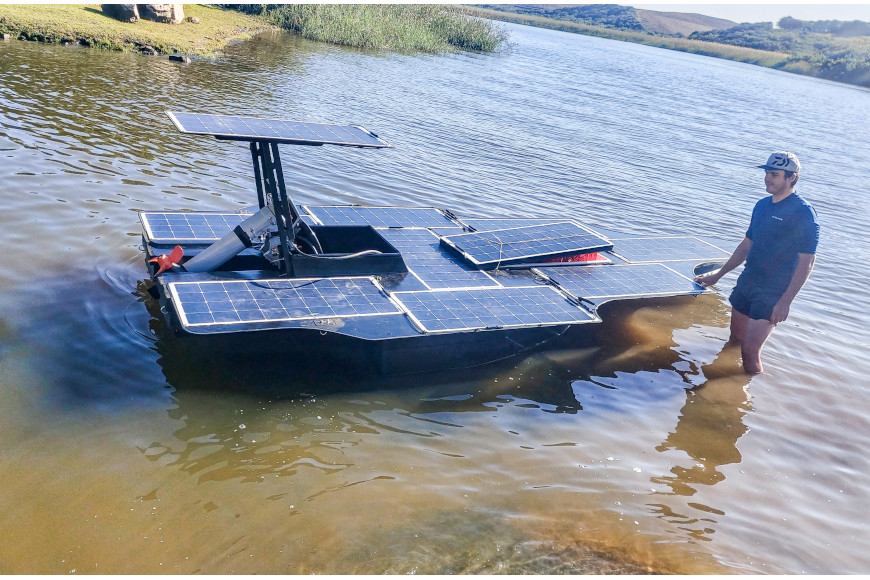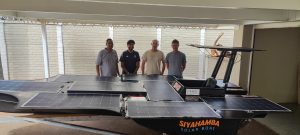To showcase one of its greatest innovations, the Durban University of Technology (DUT) in collaboration with the Energy and Water Sector Education Training Authority (EWSETA) will host the official launch of its Siyahamba Solar Boat, a ‘first of its kind’ in Africa. This much anticipated launch will take place at the Point Yacht Club, Durban Harbour on Friday, 26 April 2024, from 11h00 to 14h00.
This solar-powered boat was established by DUT students and staff housed at the DUT Energy Technology Station known as the KZN Industrial Energy Efficient Training and Resource Centre (IEETR). The Siyahamba Solar Boat is set to compete internationally in the Monaco Energy Boat Challenge (MEBC) in Europe, on 06 July 2024. DUT was elected as one of the 15 finalists out of the 100 entries that were entered into this prestigious competition.
The Siyahamba Solar Boat has an overall length of 5.5 metres, width of 2.4 metres and height of 1.2 metres. The main body is made from a carbon fibre composite structure reinforced with aluminium. The estimated overall weight is 100 kilograms. It has a PV array of 1.3 Kilowatts to charge a 1.46 Kilowatt hour battery bank in order to power its 4 Kilowatt Torqeedo electric motor.
According to the Manager of KZN IEETR, Professor Ian Lazarus, the Siyahamba Solar Boat was built to compete in solar boat challenges such as the MEBC.
“DUT’s IEETR centre submitted their unique and innovative design of their solar boat to the event MEBC organisers, which included student participation. Based on the design, our application to participate in this prestigious event was accepted as one of the 15 out of about 100 entries. Challenges such as the MEBC have been established to promote renewable energy and innovation as alternatives to keep our oceans and environment clean. Also providing mainly university teams from all over the world the opportunity to compete and showcase their design, innovation, technological and sporting strengths in a world-class international renewable energy boat racing event,” shared Prof Lazarus, who believes DUT’s participation in the competition could be the first in Africa.
He indicated that their main objective in competing would be to innovate, learn and to inspire fellow DUT students and the South African industry, in particular the KwaZulu-Natal (KZN) industry. Prof Lazarus revealed that this project exposed the team members to a high level of creativity and engineering freedom, which gave them the opportunity to build something unique.
“The Siyahamba Solar Boat project creates an awareness in our society, nationally and internally as it showcases an alternative mode of transport using innovative renewable energy technologies. Most developed nations look at large scale maritime transport for future use, our focus is on more affordable transport initiatives, especially in eco-sensitive areas of the world, where the sun is abundant, and fuel is expensive and harmful to the ecology. The application of renewable energy to the boating industry champions the cause for a cleaner and more efficient industry and environment,” shared Prof Lazarus.
Due to the innovative nature of the solar boat, Prof Lazarus is certain that this project will provide the ideal opportunity for ongoing student projects and applied postgraduate research. He highlighted that the Siyahamba Solar Boat speaks to the DNA strands of DUT’s ENVISION2030 strategy, where the university is working towards being ‘people-centred and engaged’ as well as being ‘innovative and entrepreneurial’.
Pictured: The Siyahamba Solar Boat.
Simangele Zuma


